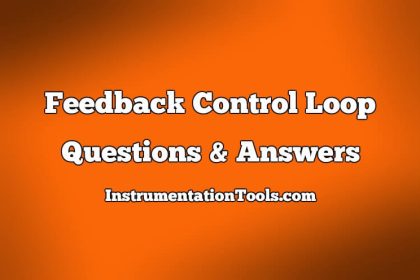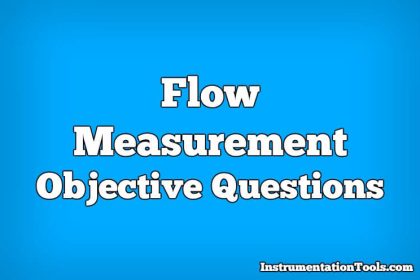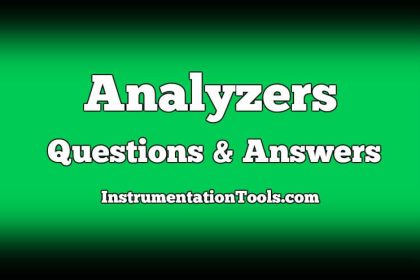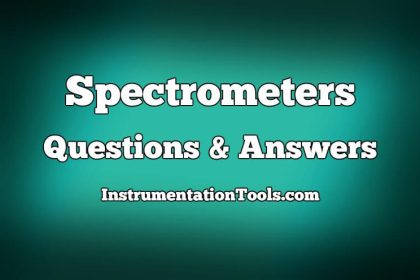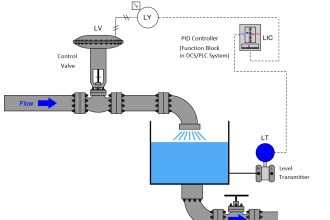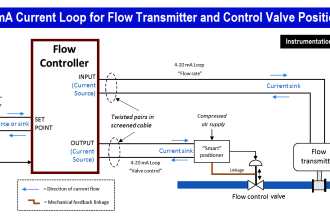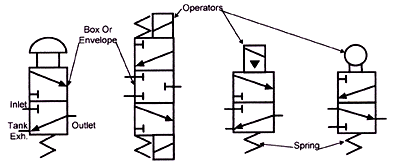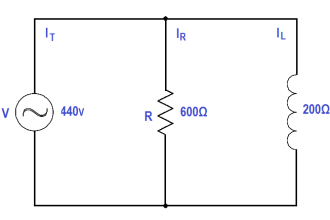Approximation of Higher-Order Systems by Lower Order MCQ
1. The output of a feedback control system must be a function of
a) Reference and output
b) Reference and input
c) Input and feedback signal
d) Output and feedback signal
Answer: a
Explanation: The output from the feedback control system must be a function of the reference input and output.
2. A control system with excessive noise, is likely to suffer from?
a) Saturation in amplifying stages
b) Loss of gain
c) Vibrations
d) Oscillations
Answer: a
Explanation: A control system with excessive noise suffers from the saturation due to multiple inputs and outputs present and high gain of the system.
3. Zero initial condition for a system means?
a) Input reference signal is zero
b) Zero stored energy
c) Initial movement of moving parts
d) System is at rest and no energy is stored in any of its components
Answer: d
Explanation: Zero initial condition for a system means it has stored energy and system is at rest.
4. Transfer function of a system is used to calculate which of the following?
a) The order of the system
b) The time constant
c) The output for any given input
d) The steady state gain
Answer: c
Explanation: The output of any given system can be calculated by the transfer function of the system and this is the ratio of Laplace output to the Laplace input considering zero initial conditions.
5. The band width, in a feedback amplifier.
a) Remains unaffected
b) Decreases by the same amount as the gain increase
c) Increases by the same amount as the gain decrease
d) Decreases by the same amount as the gain decrease
Answer: c
Explanation: The bandwidth of closed loop system increases hence increasing the noise due to increased bandwidth.
6. On which of the following factors does the sensitivity of a closed loop system to gain changes and load disturbances depend?
a) Frequency
b) Loop gain
c) Forward gain
d) All of the mentioned
Answer: d
Explanation: The sensitivity depends upon the frequency, loop gain and forward gain of the closed loop control system.
7. The transient response, with feedback system,
a) Rises slowly
b) Rises quickly
c) Decays slowly
d) Decays quickly
Answer: d
Explanation: The transient response of the system is improved with the help of the feedback and hence the transient response decays slowly.
8. The second derivative input signals modify which of the following?
a) The time constant of the system
b) Damping of the system
c) The gain of the system
d) The time constant and suppress the oscillations
Answer: d
Explanation: The second derivative of the input signal modify the time constant and suppress the oscillations.
9. Which of the following statements is correct for any closed loop system?
a) All the co-efficient can have zero value
b) All the co-efficient are always non-zero
c) Only one of the static error co-efficient has a finite non-zero value
d) Only two of the static error co-efficient has a finite non-zero value
Answer: c
Explanation: Closed loop system has one of the static error constant for any input that can be position, velocity or acceleration error constant.
10. Which of the following statements is correct for a system with gain margin close to unity or a phase margin close to zero?
a) The system is relatively stable
b) The system is highly stable
c) The system is highly oscillatory
d) The system is stable
Answer: c
Explanation: The system is highly oscillatory or unstable as the value of phase margin must be finite for the stable system.
